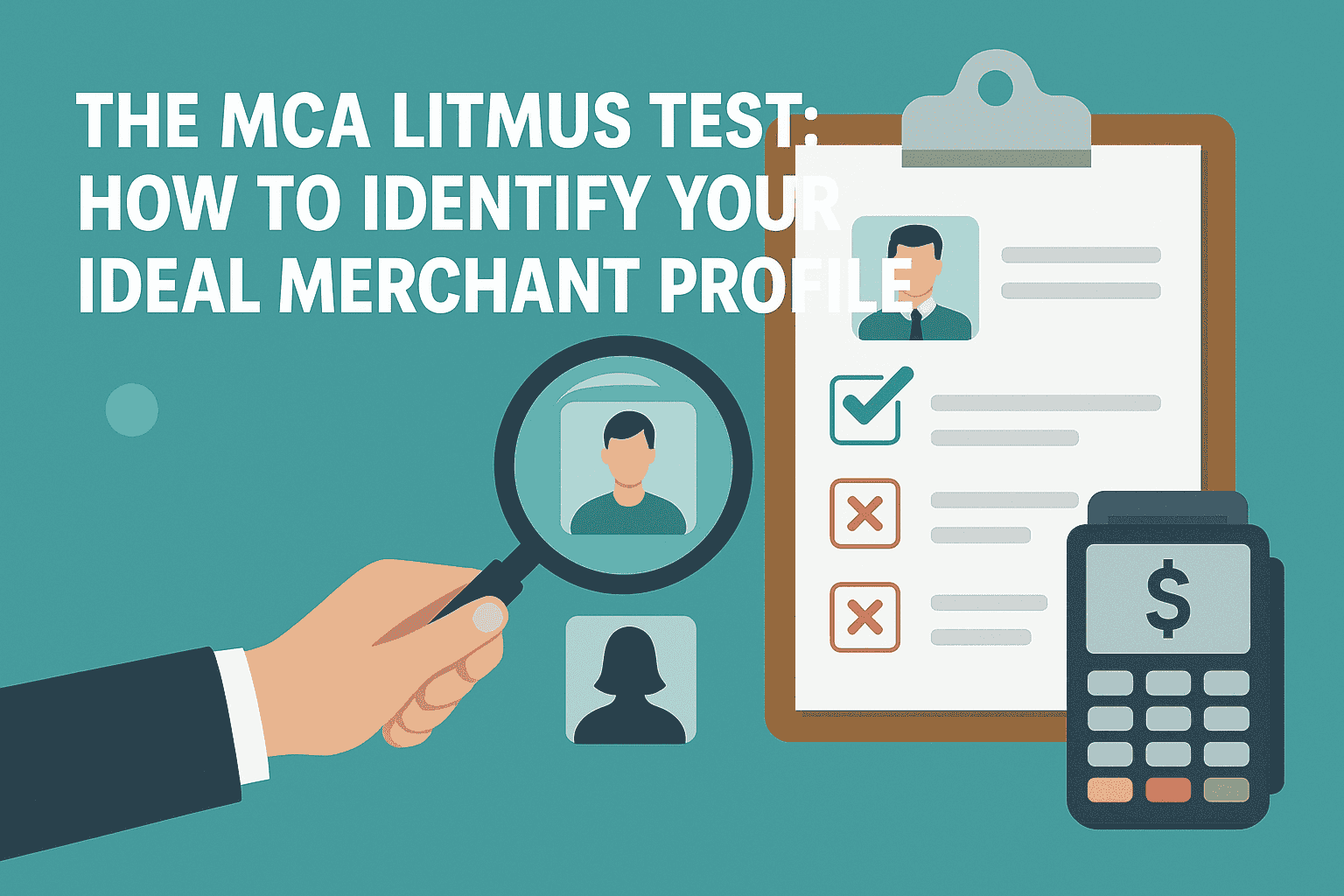
The MCA Litmus Test: How to Identify Your Ideal Merchant Profile
In the world of alternative finance, it’s tempting to see every small business with revenue as a potential client. But as any seasoned funder knows, casting a wide net is a surefire way to increase risk and sink your portfolio. The art and science of a successful Merchant Cash Advance operation isn’t about volume; it’s about precision. It’s about understanding that not all revenue is created equal and identifying the specific DNA of a business that is perfectly suited for what an MCA offers. This isn’t just about finding businesses that need cash; it’s about finding the ones built to thrive with it.
The Anatomy of the Ideal MCA Client
A successful portfolio is built by design, not by chance. It starts with a crystal-clear picture of the merchant you are built to serve. This ideal profile has several distinct characteristics.
The Non-Negotiable: High-Volume Card Transactions
The ideal merchant profile is rooted in the very structure of the product itself. An MCA is not a loan; it is the purchase of a business’s future credit and debit card sales at a discount. This single fact is the most important filter. The perfect client, therefore, is a business where a significant and consistent volume of revenue flows through a credit card terminal. Think of restaurants, bustling retail shops, auto repair garages, and salons—businesses where customers instinctively pull out plastic to pay. This steady stream of card transactions is the lifeblood of the MCA model, providing both the basis for the advance amount and the mechanism for repayment.
The Situational Sweet Spot: Urgent Need for Speed
The ideal client has a specific set of operational characteristics. They often have an urgent need for capital—a critical piece of equipment fails, a can’t-miss opportunity to buy inventory at a deep discount arises, or a seasonal cash flow gap needs to be bridged. They can’t afford to wait weeks or months for a traditional bank loan approval. This need for speed is a core part of the MCA’s value. Furthermore, this ideal merchant may not have a perfect credit score or the hard collateral required by a bank, making them underserved by traditional lenders. Businesses with predictable seasonality, like landscapers or beachside hotels, are also prime candidates, as the flexible repayment structure, which ebbs and flows with their sales, is a feature, not a bug.
Red Flags: Identifying Who to Avoid
Knowing who to fund is only half the battle. Knowing who not to fund is just as critical for long-term success.
Inconsistent or Declining Revenue
A business with inconsistent or steadily declining sales is a major red flag. The entire model is predicated on purchasing future receivables. If a business’s sales are trending downward, the value of those future receivables is questionable, and the ability to repay becomes compromised. This fundamentally breaks the underwriting model and introduces unacceptable risk.
Startups Without a Track Record
While it’s tempting to fund a promising new venture, an MCA is generally not the right tool for a true startup. The underwriting model relies heavily on past performance—typically at least three to six months of bank and processing statements—to predict future revenue streams. A brand-new business simply lacks the sales history needed for a data-driven assessment, making it a poor fit for this type of financing.
The Mismatch: Seeking Long-Term, Cheap Capital
It is crucial to understand the use case. An MCA is a short-term, higher-cost tool designed for speed and accessibility. It is not the right product for a business seeking cheap, long-term capital for a major, multi-year expansion. Using an MCA for this purpose creates a fundamental mismatch that can lead to a debt trap, which is not only disastrous for the merchant but also results in defaults that damage the funder’s portfolio.
Closing the Loop: The MCA Litmus Test
Ultimately, building a profitable and sustainable MCA portfolio comes down to strategic targeting. It’s about identifying businesses whose revenue streams, operational needs, and financial situations align perfectly with the speed and structure of a cash advance. The goal is to be a financial solution, not a financial burden. By focusing on this ideal profile, you move from being a simple provider of capital to a strategic partner that fuels growth precisely when and where it’s needed most.
Ready to Unlock Lending Data From Your Financial Documents?
Schedule a demo to see how ExaThinkLabs can streamline your document analysis process.
Schedule a personalized demo today to see how Exathinklabs can help you escape the document deluge and unlock new levels of efficiency and accuracy.